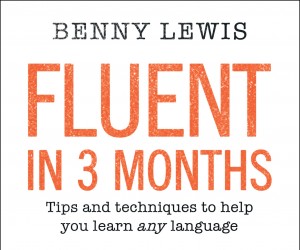Pronunciation or Intonation?
Benny Lewis, author of Fluent in 3 Months (published by Collins) gives us his tips on understanding the ‘network’ of intonation in a language, with the help of a friendly Italian polyglot.
At first glance, it can seem that the differences between a native accent and a foreign accent are all in the pronunciation, but intonation takes a much more critical role. When I had the chance to chat with a very interesting Italian polyglot, Luca Lampariello, this was made very clear.
Luca can speak a large number of languages and was studying to be an interpreter when I met him, but what really struck me as the most impressive thing about him is that he has almost no noticeable accent in several of his learned languages. When I first heard him speak English, I would have thought he was American, if it weren’t for his YouTube channel being called ‘poliglotta80’ (the Italian word for ‘polyglot’). Natives of other languages, such as German and Spanish, have confirmed that he is incredibly convincing in these languages too.
But he did not grow up speaking these languages. When I asked him about improving pronunciation to have a more convincing accent, he made sure the conversation quickly focused on intonation.
He considers intonation to be like the network that holds a sentence together. The example he gave me was to notice how the word ‘France’ sounds different in a sentence like ‘France is a beautiful country’ versus ‘I would like to go to France’. In the first sentence, when we are not emphasizing particular words, we tend to say the word ‘France’ with its intonation rising upwards, but in the second sentence, our intonation tends to go down on the word ‘France’.
As another example, he said, ‘I want to talk to Mark and John’, and if we listen carefully, we hear that we put different tonalities on ‘Mark’ (going up, indicating that the sentence hasn’t finished yet or we are giving the first item in a list) and on ‘John’ (the end of factual sentences in English tend to have a downward turn).
Rather than learn these intonation rules individually, Luca recommended that people try to see the general picture of how these rules apply to a language. Appreciating this ‘network’ allows you to step back, see the whole picture, and truly appreciate how a sentence sounds and conveys meaning beyond just its individual words.
Benny Lewis is a polyglot and tech-nomad. His new book, Fluent in 3 Months: The simplest way to learn any language, is published by Collins: http://www.collins.co.uk/product/9780007543922/Fluent+in+3+Months

